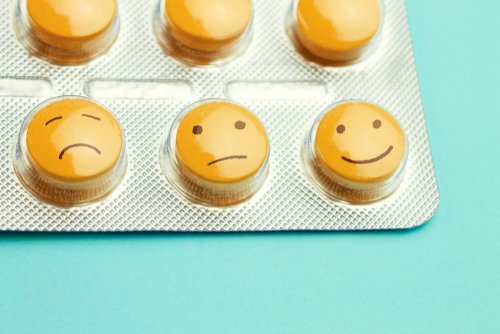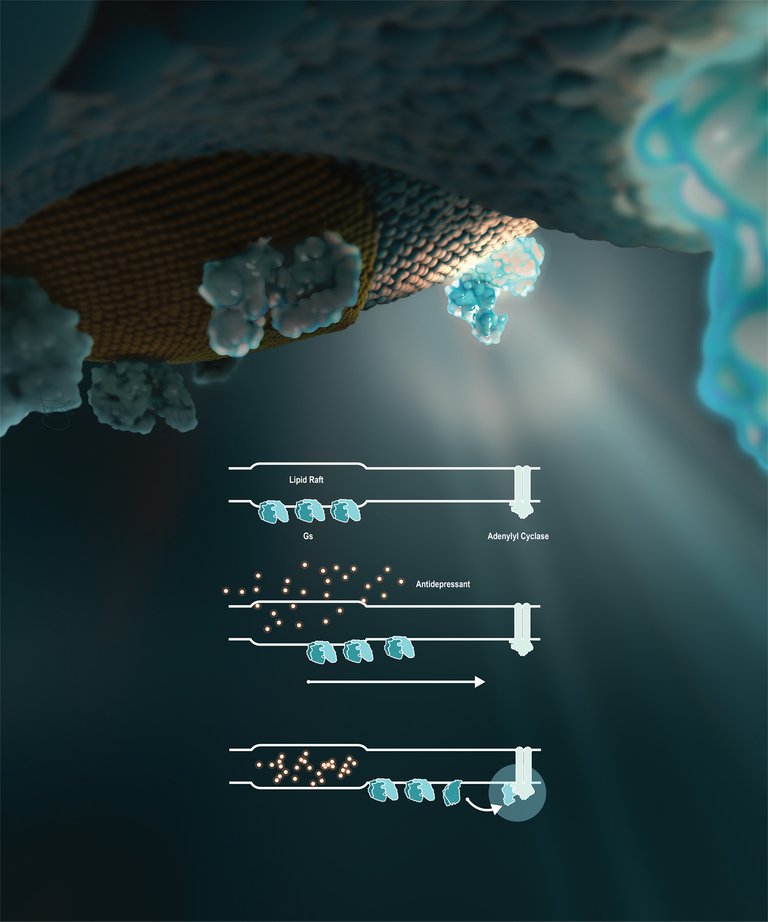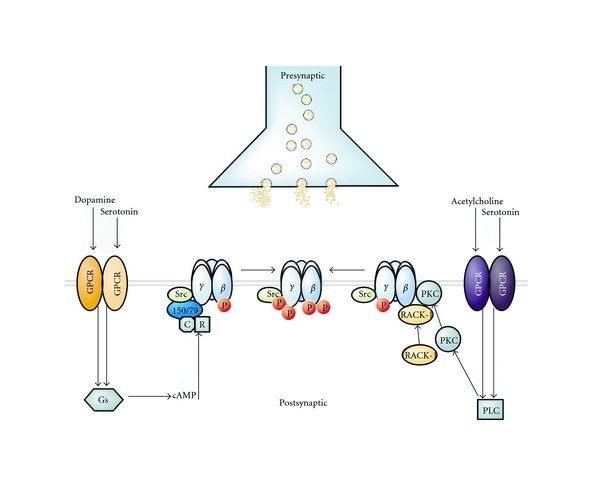Why do antidepressants take so long to work? // Por que os antidepressivos levam tanto tempo para fazer efeito?
It is known that people with a depressive profile (to generalize a wide range of psychiatric disorders) tend to have a very slow response to psychiatric medications. Or rather, any human being who decides to take a psychiatric medication will need to have a relatively long patience to find full benefits from such medications. It is practically the majority that any drug that acts through the already known and traditional mechanisms of psychiatric treatment such as selective serotonin reuptake inhibitors (and also noradrenaline) takes an average of 1 to 3 months to demonstrate its effective benefits.

Source
The issue is that it is still not fully understood why exactly this happens, and there was a very simplistic idea that this is exactly due to the obvious fact that, in general, patients seeking treatment with drugs of this category have a chemical imbalance in its transmitters and that this process of correction in serotonin levels takes longer than desired to regulate itself. But now, with more advanced and complex knowledge, it is known that the reasons behind the slowness in treatment are probably linked to something hitherto ignored.

Source
At the cellular level, we still understand little about our complex system of functioning, and one of the factors that has just been discovered and is completely linked to neurotransmitters is G Protein. immense number of functions in the body. It seems that mainly the people who "need the most" of this serotoninergic regulation are exactly the people who have a greater delay in the efficient processing of this G Protein, which is tied up in lipid cells and thus does not complete its communication function, and the exaggerated time for The antidepressant response takes place exactly until the process is saturated enough for this communication to take place and the G protein "becomes aware" of its activity.

Source
What remains to be understood now is how we could speed up this process and make the G protein more active and less delayed in its task, and also find out how this is involved with some genetic pattern, if it affects most people, or just exactly the same people. who have greater difficulty with mental issues like depression, anxiety, panic, and so on. Is it possible that some type of supplementation or medication accelerates this process? Why do some alternative medicines like Ketamine not go through the same process and have an immediate response? And how does the G protein behave in the long term, a few years after its efficient activation in antidepressants? And what does all this have to do with people with treatment-resistant depression? There are a lot of questions, maybe some already have answers, it's a topic that I need to delve deeper to understand and maybe bring it to you!
Article research sources:
1, 2 e 3
Thanks for reading and voting!
Thômas Helon Blum

Português
É sabido que pessoas com perfil depressivo (para generalizar uma gama imensa de distúrbios psiquiátricos) tendem a ter uma resposta bastante lenta com medicamentos psiquiátricos. Ou melhor dizendo, qualquer ser-humano que decidir-se por tomar um medicamento psiquiátrico precisará ter uma paciência relativamente longa para encontrar benefícios completos em tais medicações. É praticamente majoritário que todo medicamento que age através dos mecanismos já conhecidos e tradicionais de tratamento psiquiátrico como os inibidores seletivos de recaptação de serotonina (e também noradrenalina) leva em média de 1 a 3 meses para demonstrarem seus benefícios efetivos.

Source
A questão é que não se compreende completamente até hoje por que exatamente isso acontece, e tinha se uma ideia bastante simplista que isso se dá exatamente pelo óbvio fato de que de forma geral os pacientes que buscam tratamento com medicamentos dessa categoria tem um desbalanço químico em seus transmissores e que esse processo de correção nos níveis de serotonina levam um tempo maior do que o desejado para regular-se. Mas atualmente com um conhecimento mais avançado e complexo sabe-se que os motivos por trás da lentidão no tratamento provavelmente está ligado a algo até então ignorado.

Source
Em nível celular ainda compreendemos pouco de nosso sistema complexo de funcionamento, e um dos fatores que há pouco foi descoberto e está completamente ligado aos neurotransmissores é a Proteína G. Uma espécie de interruptor celular que ativa as respostas não apenas da serotonina mas executa uma quantidade imensa de funções no corpo. Parece que principalmente as pessoas que "mais precisam" dessa regulação serotoninérgica são exatamente as pessoas que tem um maior atraso no processamento eficiente dessa Proteína G, que fica atada em células lipídicas e dessa forma não completa sua função de comunicação, e o tempo exagerado para resposta do antidepressivo se dá exatamente até que o processo esteja saturado o suficiente para que aja essa comunicação e a proteína G "tome consciência" de sua atividade.

Source
O que resta compreender agora é como poderíamos acelerar esse processo e tornar a proteína G mais ativa e menos atrasada em sua tarefa, e também descobrir de que forma isso está envolvido com algum padrão genético, se atinge a maioria das pessoas, ou apenas exatamente as que tem maior dificuldade com questões mentais como depressão, ansiedade, pânico, e assim por diante. É possível que algum tipo de suplementação ou medicação acelerem esse processo? Por que alguns medicamentos alternativos como a Cetamina não passam pelo mesmo processo e tem resposta imediata? E como se comporta a proteína G no longo prazo, alguns anos depois de sua ativação eficiente nos antidepressivos? E o que isso tudo tem a ver com as pessoas com depressão resistente a tratamento? São muitas perguntas, talvez algumas já tenham respostas, é um tema que preciso mergulhar mais fundo para poder compreender e quem sabe trazer até vocês!
Fontes de pesquisa do artigo:
1, 2 e 3
Obrigado pela leitura e pelo voto!
I know some people it doesn't work on
This unfortunately can happen! Usually people give up after one or two antidepressants because they have very bad experiences of adaptation or because they don't have any improvement even in a few months, but honestly, the ideal is to persist until you find some medication that is efficient (if the situation is suffering mental), I myself have already changed my antidepressant five times. And for resistant people there are some more alternative treatments like iMaos or Ketamine, which can bring great benefits, but it's really a struggle to find the way!
This was a nice piece.
Clinically, a lot of patients stop being compliant for this reason and stop takin the drugs..
But it kicks in after 3weeks to months. Persistence is key.